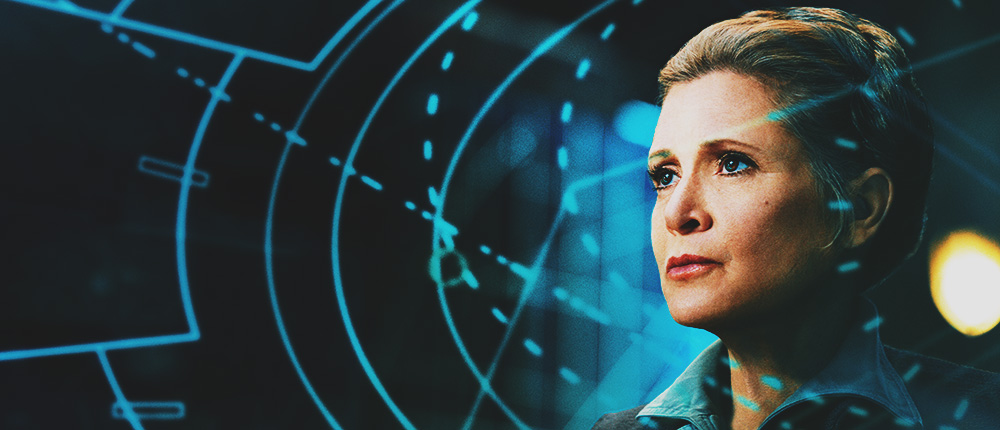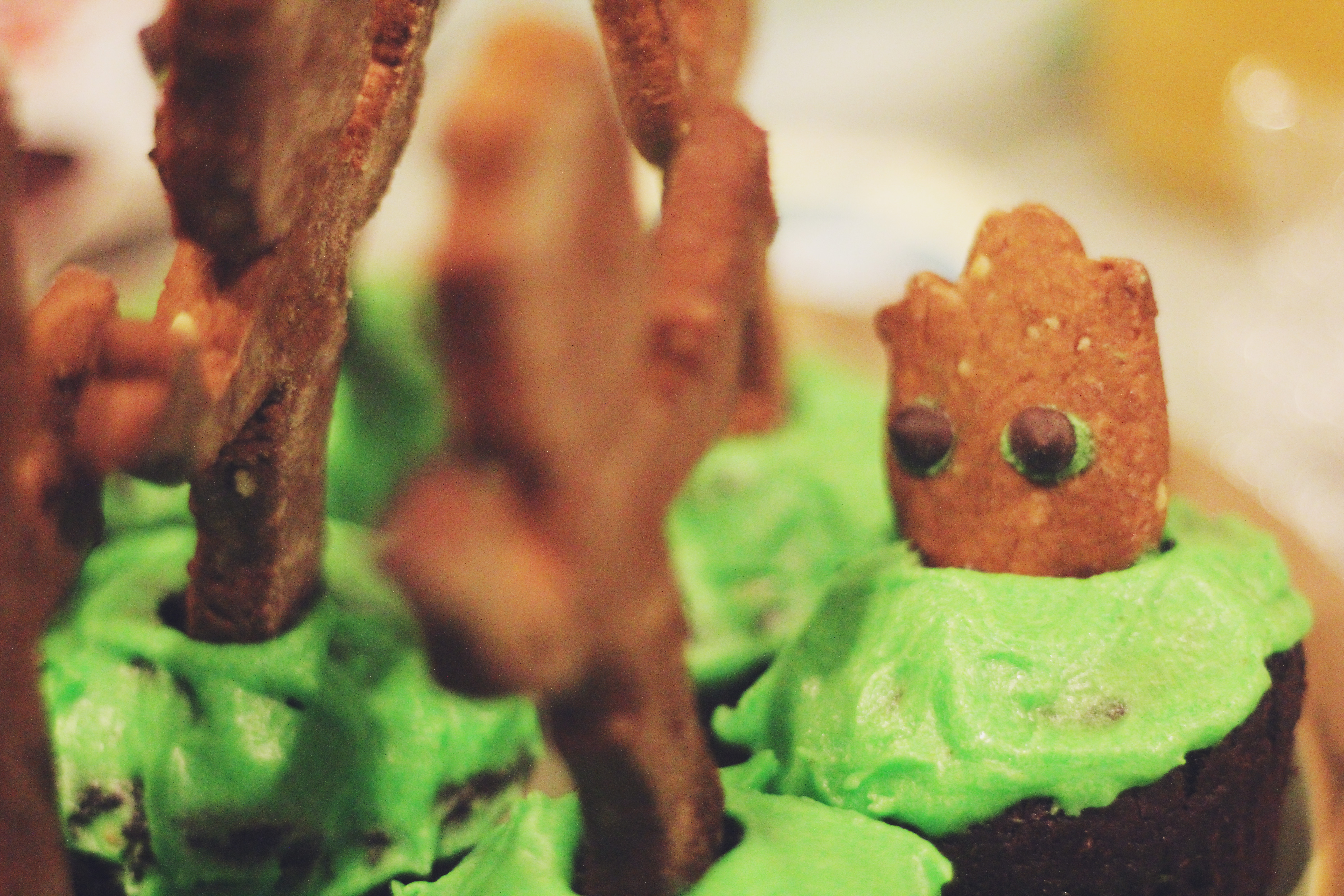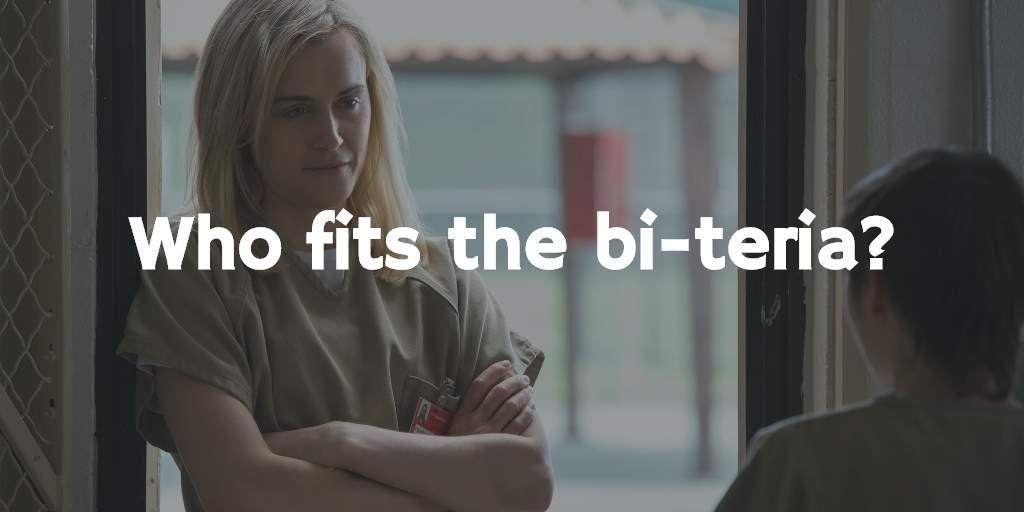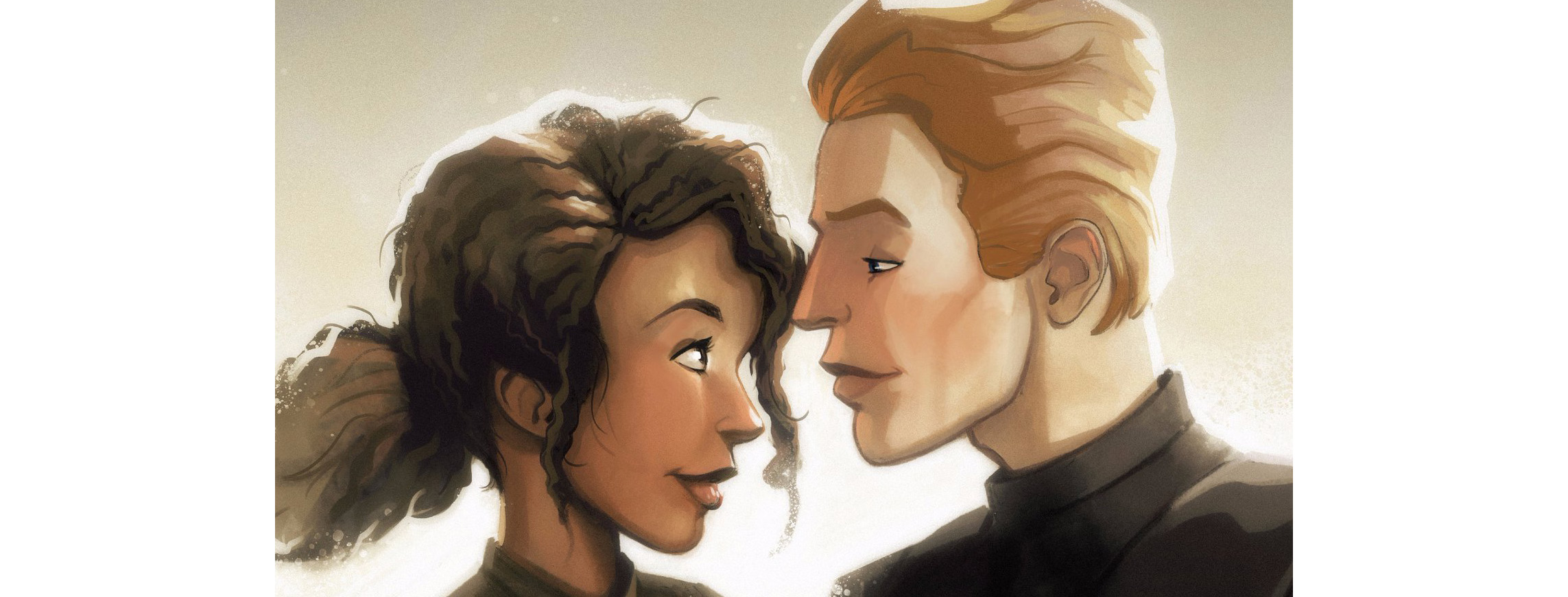
Leia Organa, and the Women Left Behind
Spoiler warnings for Version Control, Unwind, and The Fold.
Let’s talk about ladies. More specifically, let’s talk about god damn General Leia Organa, biological daughter of the biggest mistake of the galaxy and the bravest queen to ever grace Naboo’s picturesque vistas, adopted daughter of verified owner of the Galaxy’s Best Dad mug. At the tender age of nineteen, she stands up to Vader himself; decades later, she’s leading the only resistance the New Republic has against the First Order.
She is vitally important, not just in the GFFA, but in science fiction in general. Why? Because she still has her voice. She falls in love, becomes a slave (ugh), gets married, has a kid — and years later, she still has a voice.
There’s a quote in one of the essays in Of Bread, Blood, and the Hunger Games—yes, I promise I’ll stop talking about The Hunger Games one day, but today is not that day—in particular, the essay The Masks of Femininity, written by Rodney M. DeaVault:
“Through representation of female beauty, the SFF novel often gives authoritative voice to the heroine and then calls for her to sacrifice it, along with her ambition and identity…”
Upon reading this particular line I was reminded of Leia Organa, and of how, unlike her mother, she retains her ambition and authoritative voice even long past the original trilogy—at least throughout the New Canon; I cannot speak for the old EU and how Leia was characterized in that ancillary material. When enslaved, she literally strangles Jabba with the very chain that constrains her; when left alone and without resources to help the remaining citizens of Alderaan, she befriends an Alderaanian pilot and helps them herself; when faced with the potential collapse of the new government she has helped create, she steps away and creates her own rebellion.
No, she does not lose her voice. But how many female characters do, and why was Leia the first person to come to mind as someone who hadn’t, especially when I was reading an essay about Katniss Everdeen?
In the novels I have read recently, I can already think of examples of female characters getting shafted: Version Control, by Dexter Palmer, where the protagonist sacrifices herself and any ambitions for life to bring bag her pretty garbage husband because for some reason, he is the important one;
The Fold, by Peter Clines, where the main female character, who has dealt with trauma and seems a subtle, interesting character, gets swapped out for an alternate version who is far more sexually open, far less depressed, and somewhat obsessed with the main character;
Unwind, by Neal Shushterman, where the main girl is softened by her love for the main boy and their inheritance of a bunch of kids they must protect—and even before this, she for some inexplicable reason ends up looking after a newborn that the main boy picks up off a doorstep;
and, loathe as I am to say it, even the epilogue of Mockingjay, by Suzanne Collins, has overtones of Katniss’ own self disappearing into motherhood and domesticity. Whether or not that’s a good thing in Katniss’ case is somewhat irrelevant. Why does this keep happening?
Returning to Star Wars, it’s interesting to see how Leia has grown in the time between the original films and now, and how female representation has changed in the GFFA. Between the OT and the new trilogy, the prequels introduce Leia’s birth mother, Padmé Amidala, who is kind of amazing in the first two films. She is idealistic, courageous, and unwilling to back down even from the threat of her own death. You would think, considering how times have changed since Leia’s first trilogy, that Padmé’s character would finish the trilogy on a strong note.
You’d be wrong. Padmé, as much as I adore her, deserved better writing, and a director whose default wasn’t making her die of heartbreak at the end of a movie. A movie in which all her vital scenes are removed so that all she ends up doing is looking sadly out of windows for the majority of the film. In the deleted scenes, we see how like her daughter she is, helping to organize what would be the seeds of the Rebellion. In the final version, we get a sad woman, broken by her rushed, uncommunicative marriage and destroyed by her own love. What about the concepts where she brings a knife to Mustafar, resolved to kill her own husband in an attempt to save the Republic she loves?
We don’t get that woman. Where Leia is stripped of her clothes and turned into a sexual object as Jabba’s slave, but keeps her strength and agency regardless, Padmé is separated from her political role—her own strength—and turned essentially mute. She has no say in the action or the outcome of the film, her words mean almost nothing—falling on Anakin and Obi-Wan’s deaf ears.
But Leia, oh Leia. She is a bright, strong thread running through the galaxy, changing every space she goes just by existing. She is angry, strong, dark, hopeful, cold, detached, and so full of love—multifaceted, a subtle mix of her birth parents, her adopted parents, and her own self.
Science fiction is trying to get better—look at Jaylah from Star Trek: Beyond, Rey from The Force Awakens, Ava from Ex Machina, Furiosa from Fury Road—but there are women who are left behind as our media grows and changes. Women who have lost their voices, and cannot be heard once their stories have ended.
And, my god, does it break my heart to think of them. I think it would break Leia’s, too.
This post was picked by my patrons. Like my words? Support me on Patreon!




One Comment
jawajames
Great analysis, Saf! I think you’ve hit it on the head. Often times, female characters who show agency and strength get sidelined for the reasons you mention: either they come down with Trinity syndrome (where they are the awesomely butt kicker ever until the man is revealed as the chosen hero, and then they just back him up) or they hit their “domestic happily ever after” state where they somehow hang it all up for their marriage and family. The Hero’s journey frequently resolves differently for men and women: the men get lauded or become kings (Arthur), the women have their adventure and just go back to the hearth (original story of Mulan, Dorothy). But not Leia! And this is why she matters.